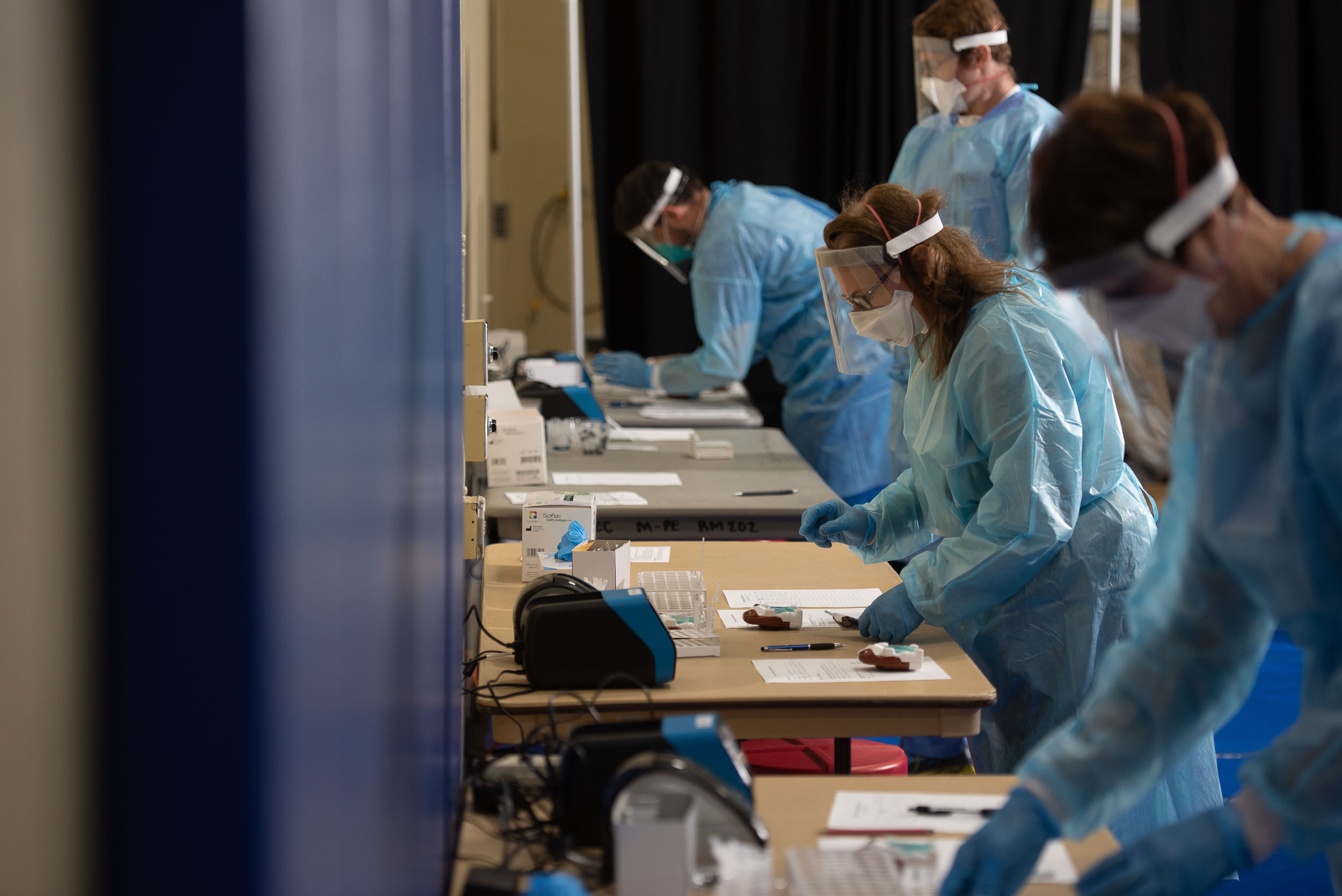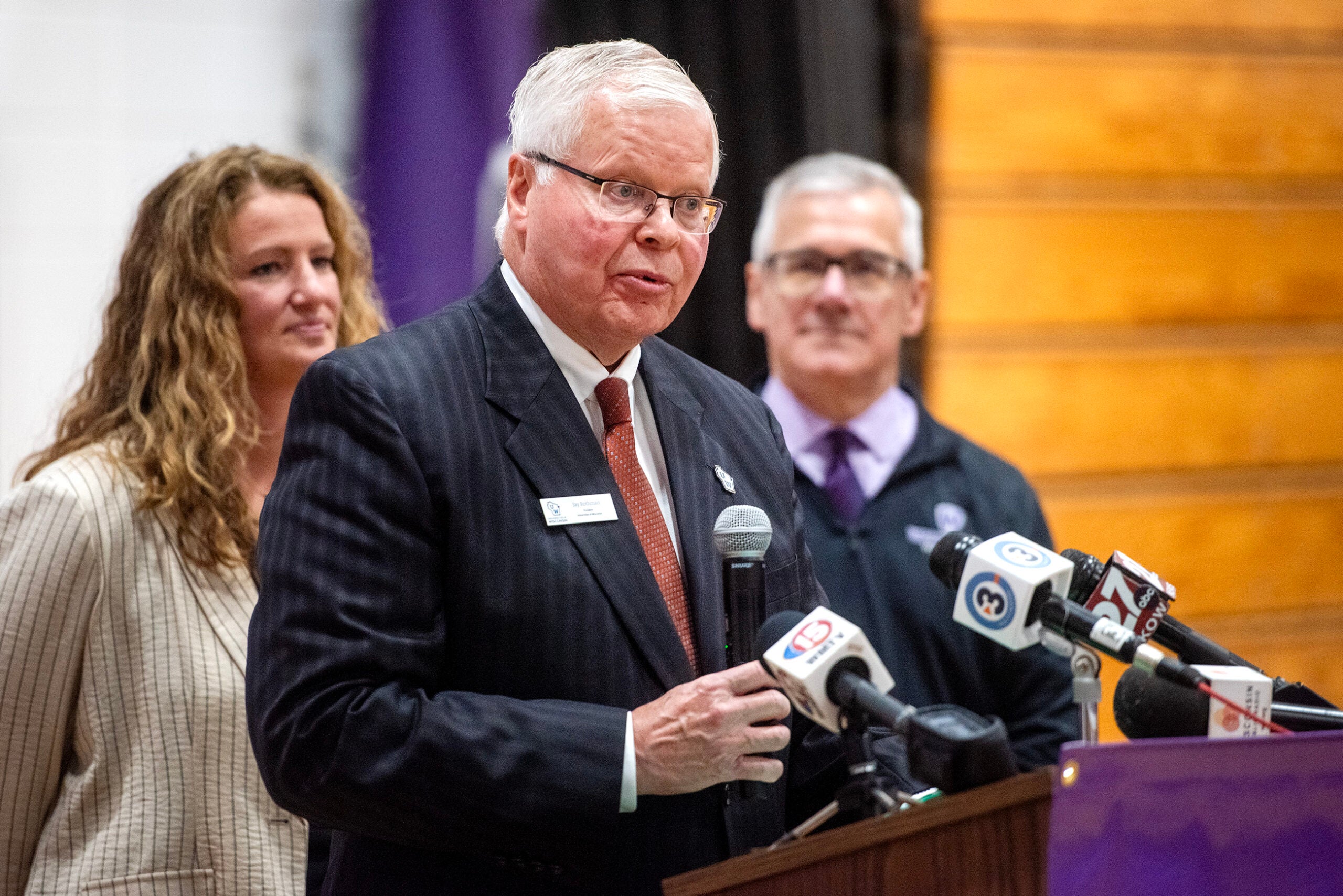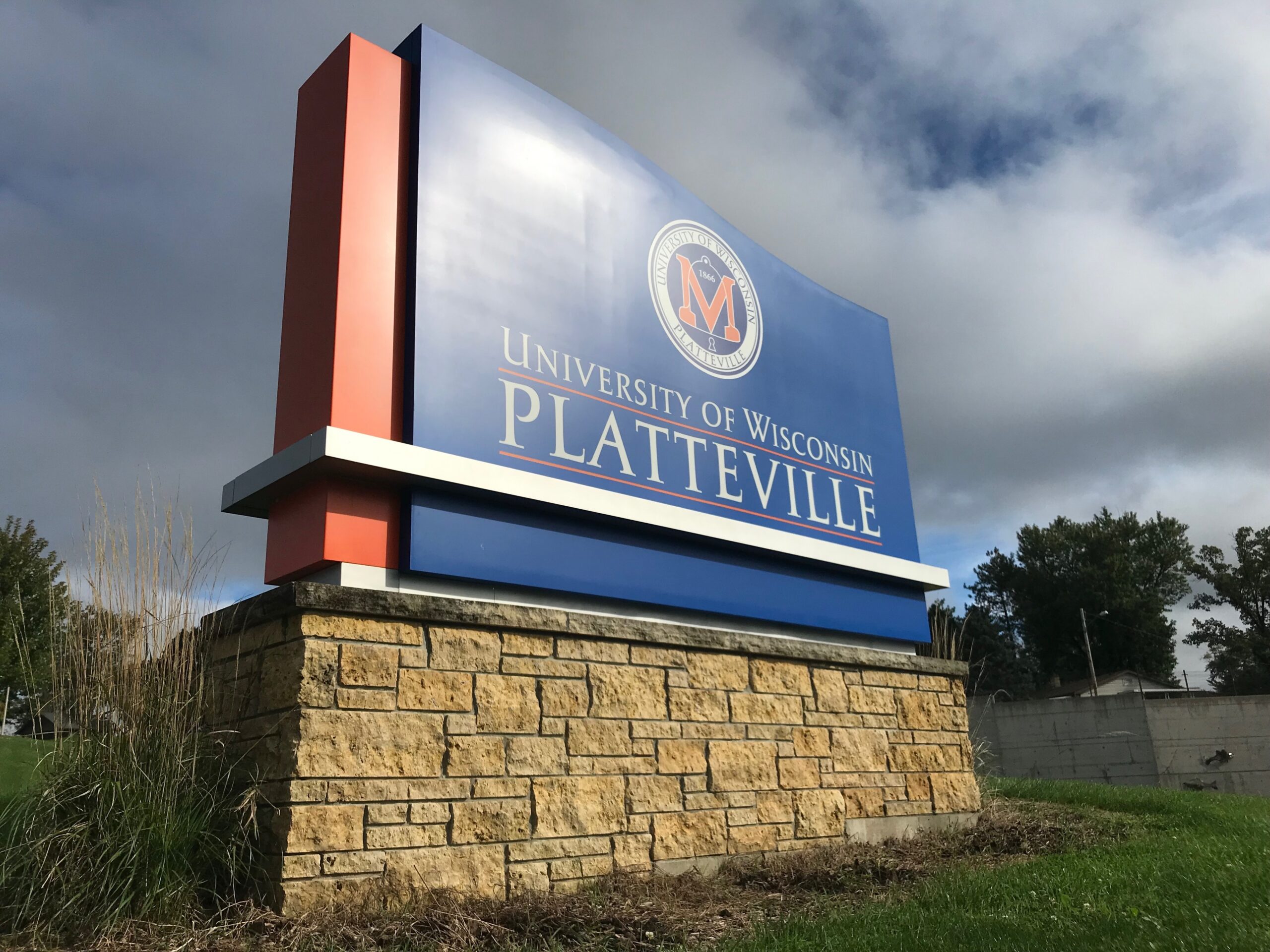Some University of Wisconsin System campuses are expanding their coronavirus antigen testing strategies to include students living off campus.
In early August, UW System announced it would use hundreds of thousands of antigen tests to conduct mandatory screening of students living in dorms twice a month. The goal was to find new positive cases in the close-quarters residence halls among students who may not realize they were infected.
Now, some UW campuses are offering antigen testing to their entire student populations and actively encouraging groups of students living off campus to take part in ongoing screening.
News with a little more humanity
WPR’s “Wisconsin Today” newsletter keeps you connected to the state you love without feeling overwhelmed. No paywall. No agenda. No corporate filter.
Antigen tests detect proteins within the coronavirus and can deliver results within 15 minutes. The tests are much cheaper than diagnostic tests, known as PCR-RT, but can be less accurate depending on when a person is swabbed.
WPR reached out to communications staff at all 13 UW System universities to ask whether they’ve expanded their antigen testing programs. UW-Stout, UW-Oshkosh, UW-Green Bay, UW-River Falls, UW-Eau Claire, UW-Whitewater, UW-La Crosse and UW-Milwaukee said they have.
UW-Madison has its own testing program, which provides thousands of PCR tests to all members of the campus community and includes targeted surveillance testing of dorm residents and voluntary surveillance testing of some off campus residents.
UW-Eau Claire Executive Director for Diversity and Inclusion Jodi Thesing-Ritter has been heading up the campus COVID-19 testing program during the fall semester. At the beginning of the semester, she told WPR the campus was still ramping up its antigen testing surveillance program with assistance from athletics trainers, coaches and temporary staff.
A UW-Eau Claire press release Thursday touting the expansion of antigen testing said up to 3,000 off-campus students could be tested under the new program, which would mean a maximum of 600 tests per day.
Thesing-Ritter said all students got an email about the free antigen testing option.
“But we did a specific email for those students engaged in high-contact activities, such as student teaching, social work, internships, practicums — where they’re doing direct service,” said Thesing-Ritter. “And so working to get those students in and encouraging them to come every two weeks to get tested.”
Thesing-Ritter said UW-Eau Claire has also developed efficiencies through the testing process, including the use of text messages and phone calls to remind students to get tested. She said student participation in the campus testing program has been high. Thesing-Ritter said they’re also using the antigen testing center, which is located in a campus athletics complex, to offer flu shots when students come for coronavirus screenings.
UW-Oshkosh Director of Risk and Safety Kimberly Langolf said they’re expanding the campus antigen testing program to target students living in off-campus areas with high levels of coronavirus community spread.
She said UW-Oshkosh is in the center of significant outbreaks happening in Winnebago, Outagamie and Fond du Lac Counties.
“Those numbers are extremely high — all over 30 percent over the seven-day average,” said Langolf. “And so our new mission is to really try to target those students that are off campus, that we may see zones that are higher infectivity.”
To do that, Langolf said UW-Oshkosh is using testing data from the Wisconsin Department of Health Services that tracks positives by census tracts. With that level of detail, she said they can even identify specific apartment complexes with large student populations.
The Centers for Disease Control and Prevention spent 10 days at UW-Oshkosh this fall, said Langolf, as part of a study to see how effective antigen tests are at finding cases in asymptomatic students. The antigen test manufacturer indicates the tests are recommended for use within five days of a patient becoming symptomatic.
“Even if our antigen test was, you know, 50 percent sensitive — which we’re still evaluating and it’s higher than that,” said Langolf. “We’re always going to catch at least 50 percent of those cases, which with PCR, we wouldn’t catch those because we would not have the ability to do that many tests.”
Langolf said PCR test supplies are in shorter supply nationwide and are much more expensive than the antigen tests.
With the help of antigen testing, Langolf said UW-Oshkosh has had a seven-day test positivity rate of below 4 percent in recent weeks. The highest rate the campus has seen was 17 percent on Sept. 21.
UW-Eau Claire’s seven-day average positive rate is currently 3 percent.
Test positivity rates across the UW System have fallen significantly since mid-September when spikes in COVID-19 cases pushed UW-Madison, UW-La Crosse and UW-River Falls to temporarily move classes online and quarantine residence halls.
Wisconsin Public Radio, © Copyright 2026, Board of Regents of the University of Wisconsin System and Wisconsin Educational Communications Board.






